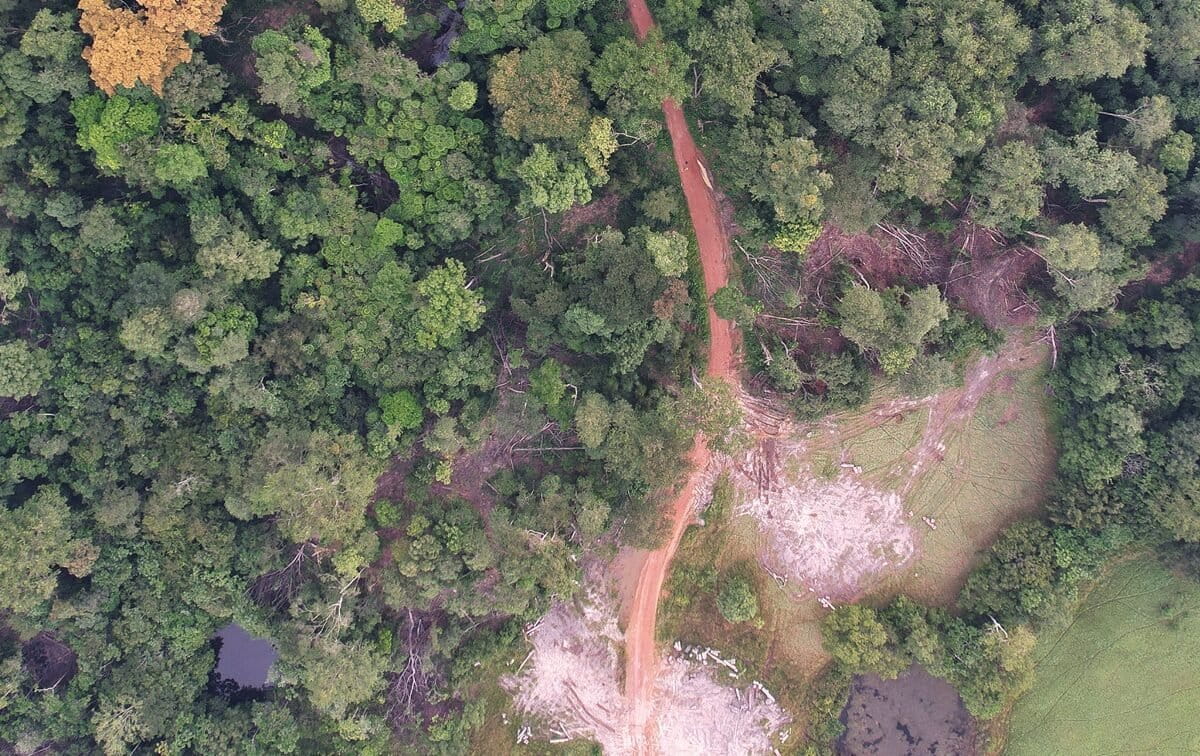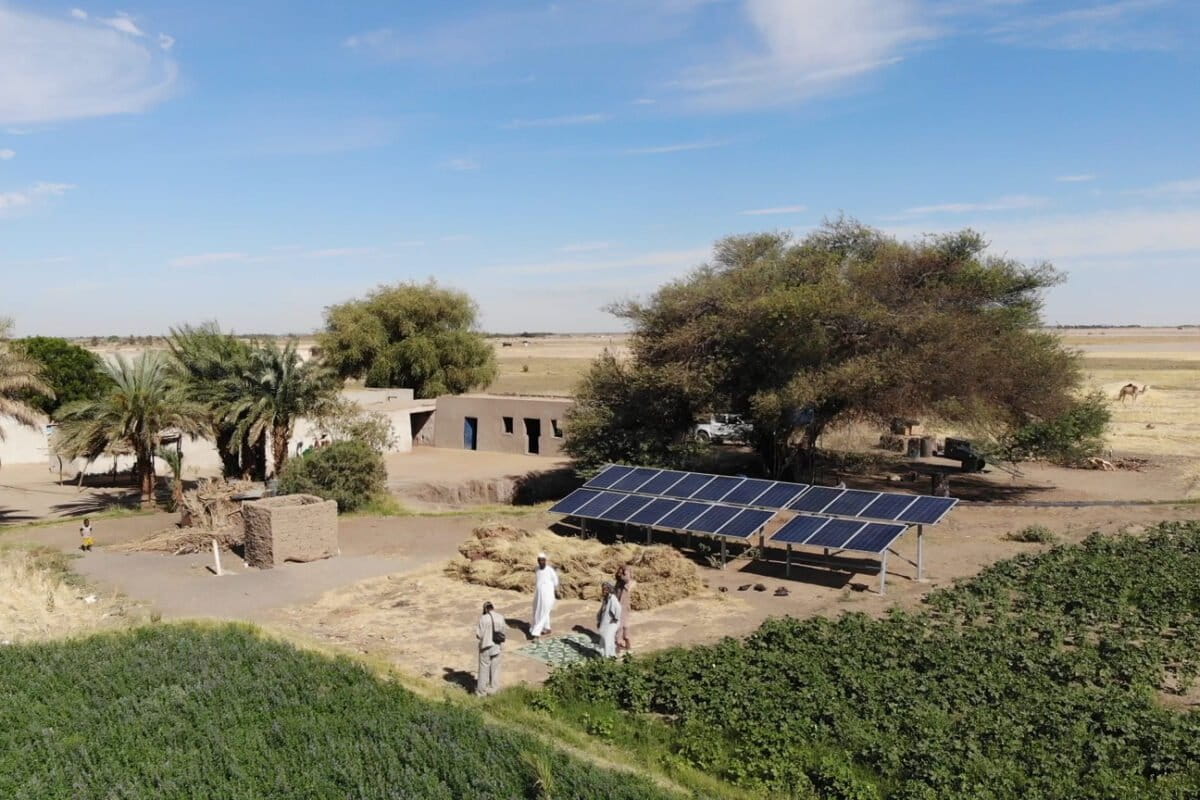Brazil’s Supreme Court orders Belo Monte dam construction to resume
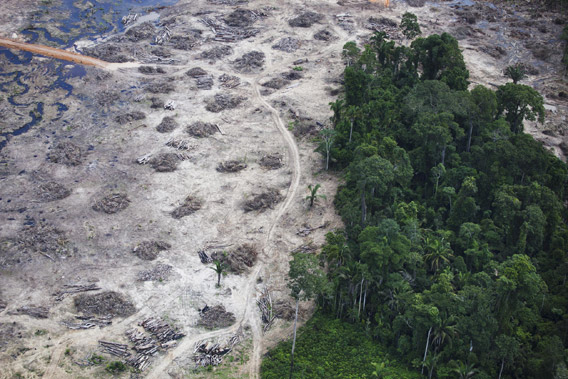
Construction of the Belo Monte Dam project, near Altamira. Photo by © Greenpeace/Daniel Beltra..
Brazil’s Supreme Court on Tuesday ordered work on the controversial Belo Monte dam in the Amazon to resume, overturning a lower court order that suspended the project less than two weeks ago. Construction activities by the Norte Energia, the consortium building the dam, resumed immediately, according to the Associated Press.
Supreme Court Justice Ayres Britto granted the request for an injunction made by the Attorney-General on the grounds that the lower court “disregarded” an earlier decision by the Supreme Court. However Britto said the new ruling could still be revised.
Cleber Buzatto, executive director CIMI, an indigenous rights group, told the A.P. his organization would continue to fight Belo Monte.
“We are confident that in analyzing the merit of the case, the court will see that the government has focused all its arguments on the economic aspects of the project and none on the impact it will have on human lives.”
Belo Monte is strongly backed by Brazilian President Dilma Rousseff, but widely opposed by environmentalists, human rights groups, and indigenous organizations who say the project will adversely affect local livelihoods and destroy the Xingu River, a major tributary of the Amazon River. For Belo Monte to be commercially viable year round, two more dams will have to be build upstream, according to Amazon expert Philip Fearnside, who notes the dam will generate substantial greenhouse gas emissions through the flooding of tens of thousands of hectares of forest and decay of vegetation during seasonal drawdowns. Belo Monte will redirect the flow of about 80 percent of the Xingu over a 100-km stretch of the river.
Construction of controversial Belo Monte dam stopped
(08/24/2012) Belo Monte dam developer Norte Energia, S.A. has stopped all work on the Belo Monte dam after receiving formal notification of the decision last week by the Brazilian Federal Appeals Court to suspend the project, reports International Rivers. Norte Energia said it would take ‘all available measures to reverse the decision.’
Belo Monte mega-dam halted again by high Brazilian court, appeal likely but difficult
(08/15/2012) A high federal court in Brazil has ruled that work on the Belo Monte dam in the Brazilian Amazon be immediately suspended. Finding that the government failed to properly consult indigenous people on the dam, the ruling is the latest in innumerable twists and turns regarding the massive dam, which was first conceived in the 1970s, and has been widely criticized for its impact on tribal groups in the region and the Amazon environment. In addition the Regional Federal Tribunal (TRF1) found that Brazil’s Environmental Impact Assessment was flawed since it was conducted after work on the dam had already begun.
Brazil’s environmental leadership at risk, warn scientists
(06/26/2012) The Brazilian government is putting its global environmental leadership at risk by ignoring scientific concern on large infrastructure projects and changes in the country’s forest laws, warned an association of more than 1,200 tropical scientists gathering last week in Bonito, Brazil on the heels of the disappointing Rio+20 Earth Summit.
Dams are ‘centerpiece of greenwashing’ in the Amazon
(06/25/2012) Brazil’s ambitious plans to build 30 dams in the Amazon basin could trump the country’s efforts to protect the world’s largest rainforest, said a leading Amazon scientist speaking at the annual meeting of the Association for Tropical Biology and Conservation (ATBC) in Bonito, Brazil.
Protesters dig canal through Belo Monte dam in Brazil (Photos)
(06/16/2012) In an symbolic protest of the giant Belo Monte Dam, Friday morning some 300 locals dug a channel in an earthen dam that blocks a portion of the Xingu River and serves as the first step of the controversial hydroelectric project, reports Amazon Watch.
Tropical dams are a false solution to climate change
(05/27/2012) Tropical dams emit considerably more greenhouse gas emissions than their temperate counterparts yet are being treated as a solution to climate change, warns a report published in Nature Climate Change.
Will mega-dams destroy the Amazon?

(04/18/2012) More than 150 new dams planned across the Amazon basin could significantly disrupt the ecological connectivity of the Amazon River to the Andes with substantial impacts for fish populations, nutrient cycling, and the health of Earth’s largest rainforest, warns a comprehensive study published in the journal PLoS ONE. Scouring public data and submitting information requests to governments, researchers Matt Finer of Save America’s Forests and Clinton Jenkins of North Carolina State University documented plans for new dams in Bolivia, Brazil, Colombia, Ecuador, and Peru.
Pictures: Destruction of the Amazon’s Xingu River begins for Belo Monte Dam
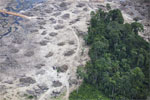
(04/18/2012) The Xingu River will never be the same. Construction of Belo Monte Dam has begun in the Brazilian Amazon, as shown by these photos taken by Greenpeace, some of the first images of the hugely controversial project. Indigenous groups have opposed the dam vigorously for decades, fearing that it will upend their way of life. Environmentalists warn that the impacts of the dam—deforestation, methane emissions, and an irreparable changes to the Xingu River’s ecosystem—far outweigh any benefits. The dam, which would be the world’s third largest, is expected to displace 16,000 people according to the government, though some NGOs put the number at 40,000. The dam will flood over 40,000 hectares of pristine rainforest, an area nearly seven times the size of Manhattan.
Last chance to see: the Amazon’s Xingu River

(06/15/2011) Not far from where the great Amazon River drains into the Atlantic, it splits off into a wide tributary, at first a fat vertical lake that, when viewed from satellite, eventually slims down to a wild scrawl through the dark green of the Amazon. In all, this tributary races almost completely southward through the Brazilian Amazon for 1,230 miles (1,979 kilometers)—nearly as long as the Colorado River—until it peters out in the savannah of Mato Grosso. Called home by diverse indigenous tribes and unique species, this is the Xingu River.

(06/03/2011) As an American I know a lot about shame — the U.S. government and American companies have wrought appalling amounts of damage the world over. But as an admirer of Brazil’s recent progress toward an economy that recognizes the contributions of culture and the environment, this week’s decision to move forward on the Belo Monte dam came as a shock. Belo Monte undermines Brazil’s standing as a global leader on the environment. Recent gains in demarcating indigenous lands, reducing deforestation, developing Earth monitoring technologies, and enforcing environmental laws look more tenuous with a project that runs over indigenous rights and the environment.
Belo Monte Dam: A spearhead for Brazil’s dam-building attack on the Amazon?
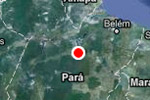
(03/23/2012) Brazil’s Belo Monte Dam on the Xingu River is now under construction despite its many controversies. The Brazilian government has launched an unprecedented drive to dam the Amazon’s tributaries, and Belo Monte is the spearhead for its efforts. Brazil’s 2011-2020 energy-expansion plan calls for building 48 additional large dams, of which 30 would be in the country’s Legal Amazon region1. Building 30 dams in 10 years means an average rate of one dam every four months in Brazilian Amazonia through 2020. Of course, the clock doesn’t stop in 2020, and the total number of planned dams in Brazilian Amazonia exceeds 60.
Related articles



